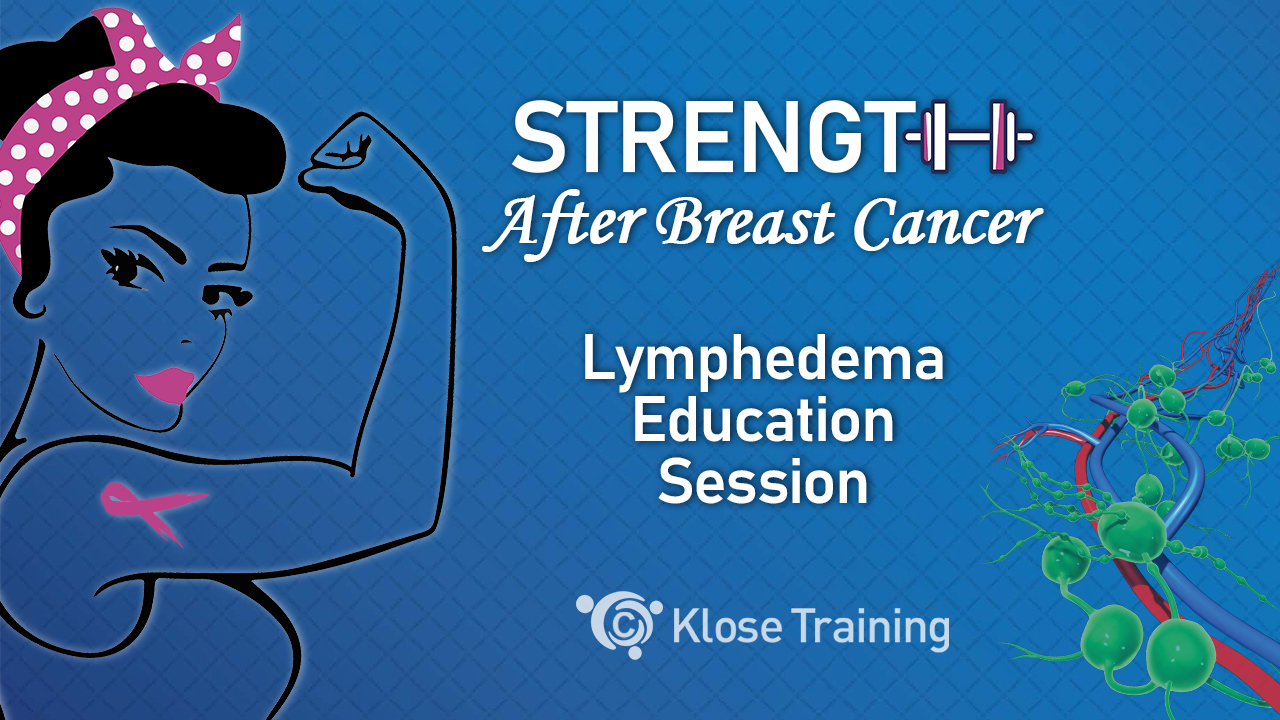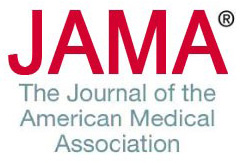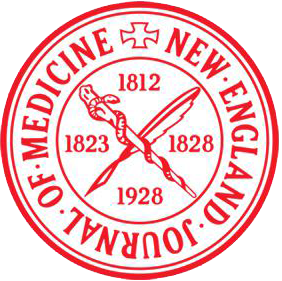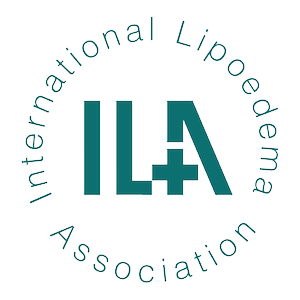Course Description:
This course prepares therapists to deliver the Strength After Breast Cancer program which is an evidence-based rehabilitative exercise program for breast cancer survivors. The Strength ABC program is based on the Physical Activity and Lymphedema (PAL) Trial which assessed the safety and efficacy of slowly progressive weightlifting for breast cancer survivors with or at risk for lymphedema. The results of the PAL trial were published in the New England Journal of Medicine, JAMA, and the Journal of Clinical Oncology among other peer-reviewed scientific journals. This weightlifting intervention decreased lymphedema exacerbations by 50%; decreased the onset of lymphedema by 70% (among women with 5+ nodes removed); improved body composition, body image, and upper body symptoms; and prevented the decline in physical function that is observed to occur in breast cancer survivors. The course provides all the materials needed to set up the program in your own facility.
Educational Level: Intermediate/Advanced
Instructional Method: Online/Distance Learning
AOTA Classifications: OT Process: Intervention and Outcomes
Klose Training is an AOTA Approved Provider of professional development. AOTA Provider #6530. This online course is offered at 4.5 CEUs, educational level is intermediate/advanced. The assignment of AOTA CEUs does not imply endorsement of specific course content, products, or clinical procedures by AOTA.
Upon completion of the course, the student will be able to:
- Cite the scientific research evidence that led to the Strength ABC Program
- Identify the structure and function of the lymphatic system, particularly relating to the risks and benefits of slowly progressive resistance training among breast cancer survivors.
- Convey the Strength ABC program flow, logistical considerations, and business model.
- Describe appropriate methods to safely and effectively teach breast cancer survivors to independently perform slowly progressive weightlifting exercise.
- Identify established methods for motivating participants to do the Strength ABC program regularly (twice weekly).
- Identify the procedures that need to be conveyed to participants participating in a Strength After Breast Cancer-type program, including:
- How to progress resistance appropriately.
- How to reduce resistance after not exercising for more than a week.
- Appropriate biomechanical form.
- How to monitor for symptoms and get appropriate evaluation for any change in symptoms that lasts a week or longer.
This online course covers all aspects of setting up and running the Strength After Breast Cancer program including how to:
- Obtain referrals from oncology clinicians
- Screen participants
- Coordinate with a Certified Lymphatic Therapist
- Educate participants about lymphedema
- Teach the 4-session exercise program
- Instruct patients on how to log their progress
- Motivate participants
- Handle logistical considerations
- Manage discharge and wrap-up
Materials you will receive include:
- PAL trial results
- Lymphedema Education Session in PowerPoint format
- Lymphedema risk-reduction guidelines
- Exercise instructions with photos
- Decision Tree for tracking adherence
- Self-Check List for program objectives
- Guidance for support staff
- Helpful information about billing codes
- Weight Training Workout Logs
Course access is NOT immediate due to the need to ensure that the prerequisites are met and to allow for hand processing of the order. Upon registration and payment of the course fee, you will be emailed a Student Agreement within 3 business days. Once the Agreement is electronically signed by you and emailed back to Klose Training, a username and password for accessing the online course will be emailed to you within 3 business days. You will have 3 MONTHS of access to the online course from the time the access information is emailed to you.
 Kathryn Schmitz, PhD, MPH, FACSM
Kathryn Schmitz, PhD, MPH, FACSM Kathryn (Katie) Schmitz is a professor at the University of Pennsylvania’s Perelman School of Medicine. She is an exercise interventionist who has led multiple trials, including a large randomized controlled trial, the Physical Activity and Lymphedema Trial (PAL), to assess the safety of upper body exercise among 295 breast cancer survivors with and without lymphedema. In Spring 2011, her research group began work to translate the PAL intervention to become more broadly disseminable through oncology clinics and physical therapists (R21-CA152451). Katie’s research extends from the role of physical activity in the prevention and etiology of obesity related cancers, to the usefulness of activity for rehabilitation and health promotion in cancer survivors of all cancers. Her meta-analyses on the topic of exercise interventions in cancer patients and survivors, published in 2005 and 2010, provide a starting point for clinicians to understand the effects of exercise among cancer survivors.
Katie has published over 160 peer reviewed scientific papers (scopus h-index of 39) and has had continuous NIH funding for her research since 2001, including three R01s, two R21s and a TREC Center (Transdisciplinary Research on Energetics and Cancer). She has also received research support from the Robert Wood Johnson Foundation, Susan G. Komen for the Cure, and the Agency for Health Care Research and Quality.
Katie has served on the expert panel for the YMCA/Lance Armstrong Foundation Cancer Survivorship Collaborative, wrote the cancer survivorship section of the recently published U.S. DHHS report of the Physical Activity Guidelines Advisory Committee, served on the ad hoc committee that developed the ACSM Cancer Exercise Trainer certification, and is the lead author of the ACSM Roundtable on Exercise for Cancer Survivors, which published guidance for exercise testing and prescription for cancer survivors in July 2010.
In 2010, the National Lymphedema Network awarded Katie the Catalyst Award, which recognizes a researcher whose work has stimulated thought, discussion, and debate that leads to improvement in patient care for those with lymphedema. Katie’s long-term professional goal is to see that all oncologists, fitness trainers, and cancer patients will eventually be as cognizant of the usefulness of exercise for cancer control as they are in its role in controlling heart disease.
Professional affiliations include:
- Professor, University of Pittsburgh School of Medecine
- Division of Epidemiology
- Department of Biostatistics and Epidemiology
- Department of Family Medicine and Community Health
- Senior Fellow, Leonard Davis Institute of Health Economics
- Senior Fellow, Center for Public Health Initiatives
- Senior Scholar, Center for Clinical Epidemiology and Biostatistics
- Full Member, Abramson Cancer Center
Contact information:
Email: schmitz@mail.med.upenn.edu
This course is open to Certified Lymphedema Therapists who are graduates of a lymphedema training program of at least 135 hours. Proof of your initial MLD/CDT training course/program must be provided to Klose Training before access to the course can be provided. Nationally-Certified Fitness Professionals* WITH access to a Certified Lymphedema Therapist (CLT) may also register.
*Nationally-Certified Fitness Professionals must have a certification specific to working with cancer patients (e.g. ACSM’s Cancer Exercise Trainer certification or the Cancer Exercise Training Institute Course) AND documentation of 500 hours of direct contact working with cancer survivors in a fitness intervention setting AND documentation of partnership with a CLT who can evaluate survivors and to whom survivors can be referred if there is a change in symptoms.
NOTE: It is the student’s responsibility to know the legal limits (scope of practice) of their profession.
The total tuition for the course is
$275. The full amount is due upon registration.
Register OnlineRegister by Mail
The following agreement must be signed and submitted before you begin your course.
Klose Training Student Agreement - Online Courses
This course totals 4.5 contact hours and has been approved for CEUs for Physical and Occupational Therapists by the organizations and states listed
here. Online course hours are also approved for Lymphology Association of North America (LANA) re-certification.
To receive a Certificate of Completion, the student must be a licensed health care professional and watch all video portions of the course, pass an online quiz with a score of 80% or better, and return the required documents specified in the course. The Certificate will then be emailed to the student.
 Kathryn Schmitz, PhD, MPH, FACSM Kathryn (Katie) Schmitz is a professor at the University of Pennsylvania’s Perelman School of Medicine. She is an exercise interventionist who has led multiple trials, including a large randomized controlled trial, the Physical Activity and Lymphedema Trial (PAL), to assess the safety of upper body exercise among 295 breast cancer survivors with and without lymphedema. In Spring 2011, her research group began work to translate the PAL intervention to become more broadly disseminable through oncology clinics and physical therapists (R21-CA152451). Katie’s research extends from the role of physical activity in the prevention and etiology of obesity related cancers, to the usefulness of activity for rehabilitation and health promotion in cancer survivors of all cancers. Her meta-analyses on the topic of exercise interventions in cancer patients and survivors, published in 2005 and 2010, provide a starting point for clinicians to understand the effects of exercise among cancer survivors.
Kathryn Schmitz, PhD, MPH, FACSM Kathryn (Katie) Schmitz is a professor at the University of Pennsylvania’s Perelman School of Medicine. She is an exercise interventionist who has led multiple trials, including a large randomized controlled trial, the Physical Activity and Lymphedema Trial (PAL), to assess the safety of upper body exercise among 295 breast cancer survivors with and without lymphedema. In Spring 2011, her research group began work to translate the PAL intervention to become more broadly disseminable through oncology clinics and physical therapists (R21-CA152451). Katie’s research extends from the role of physical activity in the prevention and etiology of obesity related cancers, to the usefulness of activity for rehabilitation and health promotion in cancer survivors of all cancers. Her meta-analyses on the topic of exercise interventions in cancer patients and survivors, published in 2005 and 2010, provide a starting point for clinicians to understand the effects of exercise among cancer survivors.







